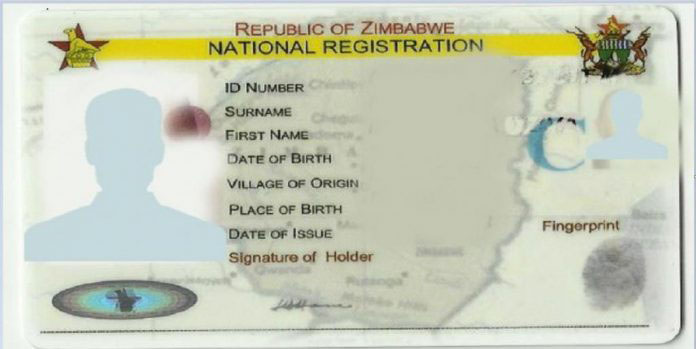
BY CALVIN MANIKA Twenty-five-year-old Charity Ncube (25), a villager from Lupane in Matabeleland North, doubts if she will ever obtain a birth certificate.
“My father disappeared and our homestead was burnt,” said Ncube from the Pupu area.
“My mother later in life tried to register me with the civil registry office, but to no avail until her death.”
Ncube is among thousands of adults in Matabeleland and Midlands, who are struggling to get national identity documents either because they don’t know their fathers because their mothers were raped by soldiers during the Gukurahundi era or their parents were killed.
In a report last year, Amnesty International said thousands of Gukurahundi survivors were “trapped in the misery of statelessness in Zimbabwe have been forced to the margins of society and struggle to access education, healthcare and housing.”
After President Emmerson Mnangagwa took over from the late Robert Mugabe following a military coup in 2017 he promised to ensure that Gukurahundi survivors had access to IDs.
However, four years after Mnangagwa made the promise, Gukurahundi survivors like Sibanda are still finding it impossible to get the documents.
Washington Sibanda, another Gukurahundi survivor, said the government must scrap stringent requirements in the issuing of IDs such as affidavits from parents.
- Chamisa under fire over US$120K donation
- Mavhunga puts DeMbare into Chibuku quarterfinals
- Pension funds bet on Cabora Bassa oilfields
- Councils defy govt fire tender directive
Keep Reading
“One witness is enough to testify that I am a Gukurahundi victim, and deserve an identity document instead of asking for affidavits and death certificates of our parents who were killed by the Fifth Brigade,” Sibanda said.
Victims of Gukurahundi have not been compensated, or given an opportunity to exhume and rebury their loved ones for closure and healing.
Mbuso Fuzwayo, secretary general of the Matabeleland based pressure group Ibhetshu LikaZulu who has been vocal on finding closure to the mass killings, said the on-going mobile registration for identity documents would not help Gukurahundi victims because they did not meet the requirements.
The exercise where IDs and birth certificates are being issued for free started last month.
“I met some woman in Tsholotsho and she was saying people from the registry were telling her that she must bring her father’s death certificate, which she does not have,” Fuzwayo said.
The Birth and Death Registration Act of Zimbabwe requires one to produce death certificate in case one of the parents or both are deceased in order to obtain a birth certificate.
“The requirements make it difficult for victims especially those who lost both parents; some are now forced to use other people’s surnames,” Fuzwayo said.
“The government must issue a statutory instrument to relax some of their requirements because it is now affecting secondary victims.”
A 2019 enquiry by the Zimbabwe Human Rights Commission (ZHRC) in Matabeleland region found that many people failing to access identity documents were Gukurahundi victims.
Zimbabwe’s constitution says every citizen has a right to have a birth certificate, national identity card and a passport.
A report compiled by Zimbabwe Peace Project (ZPP) titled: Cursed with Statelessness: Consequences of Deprivation of National Identification Documents noted the challenges faced by undocumented Gukurahundi victims.
“If nothing is done fast to assist them to acquire birth certificates, passports and national identity documents the curse of statelessness will affect more generations,” ZPP said.
Tapson Nganunu Sibanda, a political activist from Tsholotsho in Matabeleland North, said the government must fulfil its promises to assist Gukurahundi survivors to get IDs.
“People are still traumatised,” Sibanda said.
“What needs to be done also is that an independent commission of enquiry has to be put in place and the perpetrators put to account for their heinous deeds,” Sibanda said.
Human rights activists estimate that over 200 000 people were killed during Gukurahundi just after Zimbabwe’s independence in 1980.
The massacres only ended in 1987 when the Joshua Nkomo-led Zapu, which was the target of the military operation, was forced to join Zanu PF led by Mugabe.
“When the crackdown, known as operation Gukurahundi, was over, traumatised survivors had to grapple with the challenges of statelessness as they were required to produce death certificates as proof of their parents to apply for Zimbabwean nationality,” the Amnesty International report read.
“However, death certificates for people killed in the Gukurahundi operation were not issued, meaning that those who were orphaned as a result of the violence had no way of proving their parents’ nationality.”
It cited the case of 68 year-old Vaina Ndlovu from Tsholotsho, who still cannot obtain an ID because his father disappeared during Gukurahundi.
“Vaina Ndlovu, 68, lives in Tsholotsho in Matebeland North. Vaina’s father was abducted by Fifth Brigade forces and never heard from again following his abduction,” the report added.
“When Vaina tried to obtain a death certificate for her father, registry office officials told her they needed witnesses to confirm that her father was abducted during Gukurahundi, which Vaina’s family could not provide.”
- This article was originally published by The Citizen Bulletin, a non-profit news organisation that produces hard hitting hyperlocal reporting and analysis for south western region of Matabeleland.










